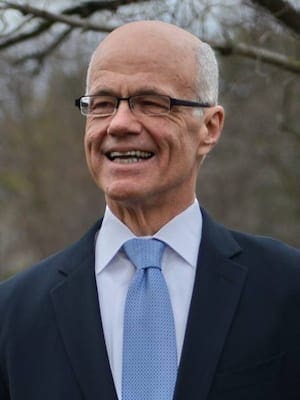Our identities – our selves – are made from the stories we’ve believed.
We’re storied selves: we live in, by and as stories – stories of ethnic, racial, national and regional heritage; of religious traditions or their absence; of gender and sexuality; of socioeconomic location; and of political loyalties.
There are accounts of success and failure; of how to be young, to be middle-aged and to be old; and of what it means to be sick, to be a patient and to be a caregiver; and of how to die.
Five years into my journey with multiple myeloma, identity questions are more pressing than illness questions.
Illness gives me the opportunity to reconsider the stories that shape and misshape my identity, to question them, to revise them or even to discard them.
Here are stories I’ve believed but no longer think to be true:
1. Strength is independence. Neediness is weakness. If I ask for help or say “I can’t,” I’m admitting failure.
2. My worth and value are conditioned on what I do, produce and achieve.
3. I need a role and a position to legitimate the work I offer to the world.
4. My body is merely a container for an intangible but somehow real self and an instrument of my ego. My body is only a shelter for spirit – a home for the “soul.”
These storylines don’t serve me well; I doubt they ever did. They isolate me, drive me past healthy limits and deafen me to the wisdom of my body.
I’m learning to live alternative stories which, in contrast to those which have shaped my life for decades, nurture wholeness and meaning.
1. Independence is an illusion, even for those who appear to be the strongest among us.
Cancer renders ineffective any lingering attempts to deny my dependence on others.
I rely on medical caregivers, some of whom I’ve never met: lab technicians who decode the messages of my blood, radiologists who read scans and x-rays, and pharmacists who mix the drugs that flow into my veins.
Those drugs are part of my treatment because researchers developed them, patients participated in clinical trials, and educators – as well as marketers – told far-flung oncologists about their efficacy and availability.
I lean on social workers and therapists for support. I’ve been accompanied and heard by a handful of “witnesses” who acknowledge and help to interpret my experience.
2. We were born in “original helplessness,” as psychologist Adam Philips puts it, utterly dependent on the caregivers who hold, feed, clothe, shelter and nurture us.
And, in more ways than we sometimes acknowledge, none of us can thrive and flourish, at any age or stage, apart from others’ steady care. It’s not weakness to need help; it is human.
3. My worth depends on God’s grace, not on what I do.
Astonishingly, as a sheer gift, God calls all of us – including me – “beloved” and takes delight in us, quite apart from our successes and failures.
4. My life’s work is the response I make to God’s call to experience and to express love and to be fully alive.
That work doesn’t depend on my having a role that others recognize. I do what I do, not because I have a position or a salary, but as a way of answering God’s call to life and love.
5. My body is me.
I can’t know myself apart from my body. We don’t just have bodies; we are bodies – more than bodies, of course, but never less. We’re bodies and spirits, not either, but both.
We’re not pearls waiting to be freed from our uncomfortable oysters, or ghosts trapped in irrelevant machines, or souls imprisoned in oppressive flesh.
Our bodies know important truths about us before they register, if they ever do, in our minds as thoughts; and our bodies will teach us wisely if we give them the attention they need and deserve.
Our blood and bones, breath and bellies, speak to us. I want to listen to my body – to treat it tenderly, not fight it fearfully.
These counter narratives are still new enough to me that I sometimes slip back into the older and more familiar, though no longer comfortable, stories by which I’ve lived for a long time.
Part of my ongoing practice, more vital to my health than medical treatment, is to review and rehearse, so as to remember, these better stories – stories that heal, even if medicine doesn’t cure.
Editor’s note: A version of this article first appeared on Sayles’ blog, From the Intersection. It is used with permission.


